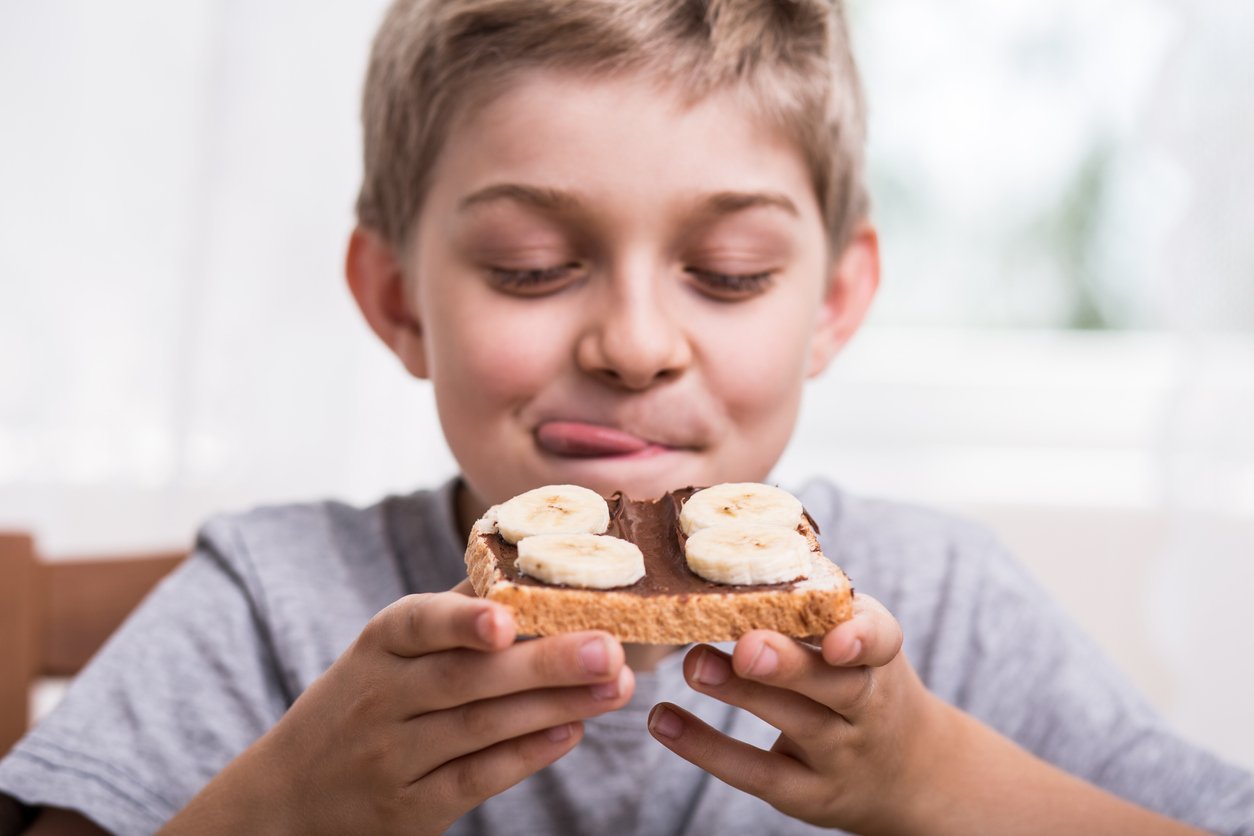Child Obsessed With Sugar? Here’s How to End the Sugar Craze
Do your kids seem to go crazy when it comes to desserts?
Is your child obsessed with sugar and preoccupied about the next time they get some kind of treat?
The answer might be because they are not more frequently allowed desserts or that sweets are restricted foods, to which they don’t regularly have access.
Let’s face it - no matter how much you might control it at home, kids are constantly exposed to those delectable delights - candy, ice cream, cookies, cupcakes, - you name it, it’s everywhere. Holidays, special occasions, birthday parties, school celebrations, grandparents’ houses, and more.
So what does a mama have to do when it comes to kids and sweets? What is the best, most realistic approach to take?
(Hint: It doesn’t involve banning sweets from your house forever or preventing your child from accessing them.)
Many parents may attempt to limit, control, or prevent their child from having sweets and treats, but these behaviors, though well-intended, can definitely backfire.
Because food that is “off-limits” or forbidden will almost always become more desirable, no matter what it is. This is normal human behavior. We are always drawn toward the things we are told we cannot have.
Think about it this way.
Let’s say you invite your kid into a room filled with toys. You tell them that they are free to play with any toy they want, except one particular toy in the center of the room.
What do you think will be their natural tendency?
They are going to play with other toys but will always gravitate toward the one toy which is off limits. It will plague their mind. They won’t be able to stop thinking about it or asking you questions about it or wondering why they can’t play with it. It becomes all-consuming - not necessarily because that toy is special in and of itself, but because it is restricted. This would all become a non-issue if the toy was never off-limits to begin with.
This same scenario applies to desserts and treats.
The more you tell your child they can’t have a treat or aren’t allowed to have desserts or sweets, the more they will be drawn to these foods and desire them more.
Combine this with negative language about these foods, such as stating, “Too much sugar is bad for you”, or “That is unhealthy for you”, and desserts can be made into something that is chaotic and unmanageable for a child.
Children are more likely to binge and overeat on foods they have restricted access to rather than learning how to eat them according to what their body is wanting and needing.
Children naturally tend to gravitate toward sweeter foods, so how can you help them get over the dessert craze and eat these foods moderately?
The good news is that helping your child regulate their intake is not as complex as it may seem, though it may involve some strategies that feel counter-intuitive.
Let’s look at some common questions and scenarios:
What if my child doesn’t know when or how to stop eating sweets?
Worried that if given the opportunity to have desserts, your child won’t know when to stop eating?
Many parents fear that if they don’t keep sweets out of reach that their child will only ever want to eat these types of foods. This is only really true in instances where a child has felt deprived or restricted from eating sweets.
The truth is that children have an innate capability to regulate their intake and when given the opportunity, eat what their bodies are needing.
Certain parental feeding practices, like restricting or limited foods, can interfere with a child’s natural ability to self-regulate what they eat.
The best thing you can do is trust your child when they are eating sweets - allow them to eat as much as they want or need without interfering, shaming them, making them feel bad or questioning how or what they are eating.
When should I offer my child desserts?
Now, does this mean kids should have unlimited access to sweets and desserts, whenever they want?
The flip side of the coin is that kids do need structure when it comes to eating, but offering sweets, treats, and/or desserts within that structure can give them opportunities to balance their intake and have access to a variety of foods.
Keep this mantra in mind:
“You provide, your child decides."
Meaning, you are the one that decides when to offer a dessert or treat with a meal or snack and let them decide how much to eat - independent of what they ate for a meal. Desserts should not be used as a bribe or reward for finishing vegetables or taking “one bite” of anything - this only reinforces the idea that there is something “special” about sweets, elevating them above all other foods.
When you treat sweets casually and make them part of everyday meals, the less your child will focus on it and better regulate how much they need when eating.
Serve dessert alongside meals and don’t make it a big deal. They’re likely going to eat it anyway, so why not let them choose when. Kids who are forced to wait to eat dessert until they have finished their dinner or even as a bribe to eat vegetables are subject to negative reinforcement around food.
How can I help my child feel good about eating?
The best thing you can do to help your child feel good about eating is to be the model yourself for a healthy relationship with food and body. If your child can see you enjoying a variety of foods, including sweets and desserts, without feeling guilty, anxious, or worried, they too will learn that they can trust their bodies to enjoy all kinds of food.
Kids also do better with predictability and structure, so offering regular meals and snacks that incorporate a variety of foods, including sweets and desserts, will help them regulate their intake and appetite and trust that they have access to all foods.
Use neutral language around food and desserts and don’t make food a big deal. Remind kids that food is always in their future, including desserts, treats and fun foods. Many kids eat dessert with the “last supper” mentality for fear that they might never get this food again. A child who trusts that they will have more opportunities to eat dessert in the future won’t develop this mindset and feel less crazed around sweets.
Be aware of your own language, attitude, and behaviors with desserts. Do you allow yourself to enjoy desserts or are they also off-limits for you? Do you approach sweets with an all-or-nothing mindset? Do you trust your own ability to eat desserts?
Distrusting your child’s ability to eat sweets may be reflective of your own relationship with food and your body, so it is important to compassionately understand where you may be coming from.
Above all, remember that food is just food, including sweets and desserts; something meant to be enjoyed, not forbidden.
If you are needing more help and support in this area, please check out Simplify Sweets Academy below - I would love to hear your story and help guide you and your family with a more peaceful relationship with food, including sweets.







